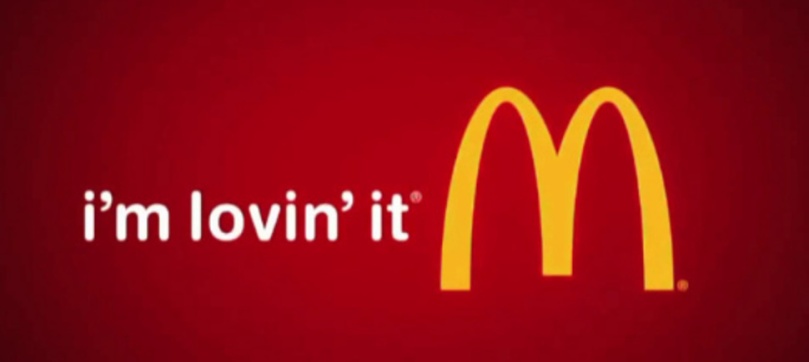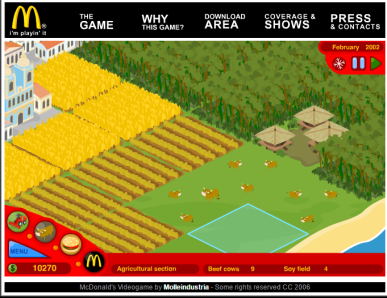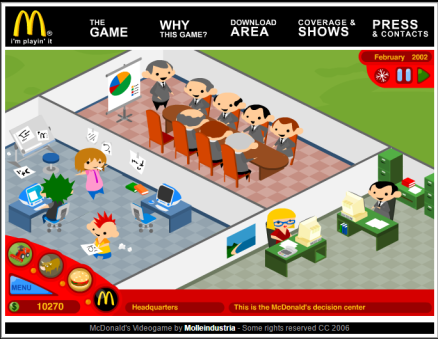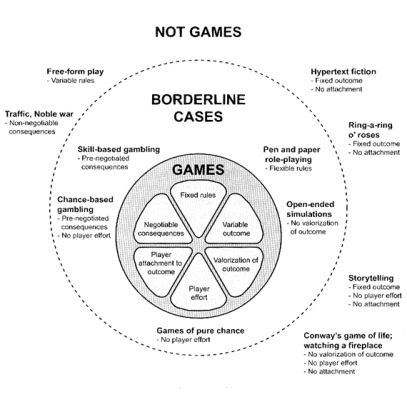
The game, McDonald’s Video Game, by the developer Molleindustria is a quirky, political, but cute game created for younger generations to see the detrimental effects that big companies, like McDonald’s, have on society. The game has 4 sections that must be attended to the agricultural section, the feedlot, the fast food restaurant, and the McDonald’s headquarters. While playing the game, each section must be attended to for profits to rise and to keep the headquarters happy. The agricultural section has a nearby town, an indigenous village, and a rain forest. When you begin, you are given eight plots of land to grow soy or as a pasture for the cows. Here the player can genetically modify the soy, intensify pasture, destroy the rain forest and village, or corrupt the mayor to take land from the town.
The next section is the feedlot where you bring the cows to fatten them up for slaughter. The player can add industrial waste, hormones, or even animal flour to the cow’s fodder. Unfortunately, this can lead to the cows getting sick or later lawsuits. While I was playing poor little Cow Daisy got sick and I was forced to vaporize her with fire. I watched in horror as Cow Daisy was charred black and crumbled into pieces as she disappeared from sight. Even though Cow Daisy was terminated, many of her other cow buddies were slaughtered then brought to the third section, the Fast Food restaurant.
At the restaurant, the player can hire or fire workers to man the registers or work the assembly line. The workers will work as long as there is meat, they are happy, and the customers keep coming by. The last section is the headquarters where the board of directors, marketing division, and public relations office is. Everyone is busy at work, especially the marketing team as one person is seen getting high and balancing on one foot.
My first impression of the game was that it was an innocent kids game. It was another Diner Dashesque game that I tend to enjoy. Time management games are definitely my strong suit. The characters looked cute and adorable, but as I continued to acquaint myself to the game I noticed some dark things. First was my experience with Cow Daisy then I saw the HQ with the directors that are all older white men. Then I noticed everyone in this game is white except for the few minorities I always saw working in the fast food restaurant. At this point it really hit me what this game was. It was one giant political message. I went back through each section looking at the options and I was in horror but excited. I liked the game. It was interesting and dark; I had awoken my evil side. I spent way too long playing this game trying to destroy humanity and nature. I found the game fun and not as easy as I assumed; like Koster says games are fun when they challenge and teach you. As I played more and more problems arose from my actions leading to my bankruptcy and the game over message popping up in my face. While I was having fun with the game it was still a political message. Can political messages even be considered games? Since its purpose was to portray a message can this video game still be a video game?
Jesper Juul’s definition of a game has six criteria it must follow. They are rules, variable/quantifiable outcome, valorization of outcome, player effort, player attached to outcome, and negotiable consequences. The McDonald’s Video Game had very little rules. The most obvious being the need for a computer and access online. The game forces you to take your time and manage your money. The number one rule was to keep each section happy and running by not overspending using PR and marketing to your advantage as well as keeping the cows healthy and fed. Each section depended on one another so you are not able to only focus on one section at a time. The player can’t corrupt and buy everything because they would instantly go bankrupt. This creates the quantifiable outcome. You need to manage your money and profits because once it’s in the negatives you can lose. The variable outcome comes from the pop-ups of lawsuits or anger against your company. They come up at different times depending on your actions or just to make it harder as you play. Valorization of outcomes is when some outcomes are better than others. This can be seen when playing the game and there’s a lawsuit, but you don’t have enough money for PR or when your cows kill off the land and it becomes useless. There is player effort involved in the game because while you can randomly buy land, PR, and marketing this will easily lead you bankrupt and you’ll lose the game. The McDonald’s Video Game involves some type of strategy and focus from the player in order to receive a positive outcome. The effort of the player can create an attachment as well. I felt attached to the outcome as I played because I was trying to keep the business afloat. Once I saw I was losing money I became panicked because I knew I would be close to losing the game. I was attached to the outcome because I was putting forth effort to get there. Lastly, the McDonald’s Video Game has negotiable consequences because there is a play and pause button. The player can stop playing if they lost or if they no longer want to play. There are no harmful consequences to the player if they play the game. So is this a game then? Yes, according to Juul it is.
They are rules, variable/quantifiable outcome, valorization of outcome, player effort, player attached to outcome, and negotiable consequences. The McDonald’s Video Game had very little rules. The most obvious being the need for a computer and access online. The game forces you to take your time and manage your money. The number one rule was to keep each section happy and running by not overspending using PR and marketing to your advantage as well as keeping the cows healthy and fed. Each section depended on one another so you are not able to only focus on one section at a time. The player can’t corrupt and buy everything because they would instantly go bankrupt. This creates the quantifiable outcome. You need to manage your money and profits because once it’s in the negatives you can lose. The variable outcome comes from the pop-ups of lawsuits or anger against your company. They come up at different times depending on your actions or just to make it harder as you play. Valorization of outcomes is when some outcomes are better than others. This can be seen when playing the game and there’s a lawsuit, but you don’t have enough money for PR or when your cows kill off the land and it becomes useless. There is player effort involved in the game because while you can randomly buy land, PR, and marketing this will easily lead you bankrupt and you’ll lose the game. The McDonald’s Video Game involves some type of strategy and focus from the player in order to receive a positive outcome. The effort of the player can create an attachment as well. I felt attached to the outcome as I played because I was trying to keep the business afloat. Once I saw I was losing money I became panicked because I knew I would be close to losing the game. I was attached to the outcome because I was putting forth effort to get there. Lastly, the McDonald’s Video Game has negotiable consequences because there is a play and pause button. The player can stop playing if they lost or if they no longer want to play. There are no harmful consequences to the player if they play the game. So is this a game then? Yes, according to Juul it is.
I think that a game can include political statements, and just remember that as long as it meets the requirements to be considered a game… then why not… By you making those observations speaks to your ability to look beyond what is in front of you! Good Job!
LikeLike
I honestly have not tried this game but I also wrote about Juuls and the quote “They are rules, variable/quantifiable outcome, valorization of outcome, player effort, player attached to outcome, and negotiable consequences.” If it follows the certain criterias that Juuls follows then it should be a considered a game. Hope you enjoyed the game!
LikeLike
So, your final statement is that the McDonald’s Video game is a game, “according to Juul.” That seems like you want an extra sentence or two of protest. You don’t seem to agree, at least on some level. As one other commenter notes, that level is in politics. Can a game be a game if it is about a political message? Now, a separate question, would be whether this game is “play” according Sutton-Smith’s rhetorics. Or, is it something else that is merely disguised as play?
Otherwise, check out rules again. Rules are not the hardware, they’re the basic statements that run a game. In a race, something like: people start running at the same time. But in a video game it’s the hard coded things that set up the program: a mad cow will infect other cows; if you do not make money your investors will kill you and your game will end.
LikeLike
Thank you for your comment. Yea, in some ways I kind of did not agree because it was a political game. I was concerned that because it had politics that it became something else not necessarily a game. As we have seen in class, I would now classify the McDonald’s Video Game as an art game. The McDonald’s Video Game makes you think about the impacts the corporation has on the environment and society. At the time I wrote this I was concerned that because the game was created to convey a message and not necessarily to entertain then it should not be a game. I understand the game differently now. The McDonald’s Video Game is an art game.
LikeLike
I’m glad you mentioned that you now would call it an art game, as I was reading your blog that’s the question that came to mind. I also wanted to say that I like the structure of your blog. Your introduction of the game made your argument comprehensible, despite the fact that I had never played the game.
LikeLike
[nods nods].
LikeLike
The game is indeed a political statement. There are many other critiques besides the lack of minorities in power positions. There are several other critiques the game goes over. If you watch the tutorial it highlights them in a very obvious tone. I also played this game and found it very fun but sobering in a way. I think there is something to be said about fun and learning as well. But do you think this is truly play?
LikeLike
I really like the idea of this game. While it’s clearly about revealing McDonalds’ unethical practices, it also shows how individuals within the system don’t have much choice but to go along with it. If you attempt to run the corporation ethically and sustainably, you’ll likely go bankrupt in this game. In the real world, if you’re in a corporation involved in such practices and attempt to change at the cost of profits, you’ll be replaced with someone else who holds the profit motive above all else. So even CEOs are not entirely to blame.
On another note, I think that “negotiable consequences” simply means that players are able to influence the outcome of the game.
LikeLike